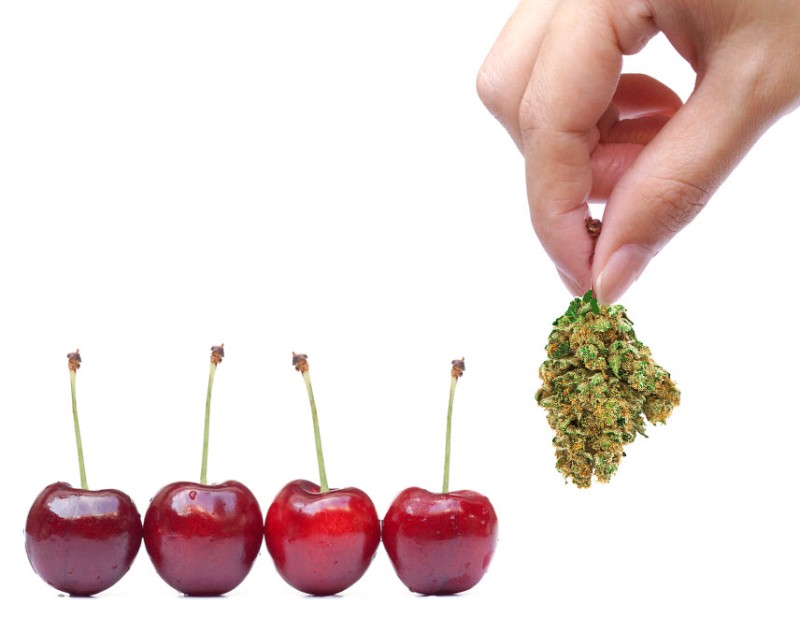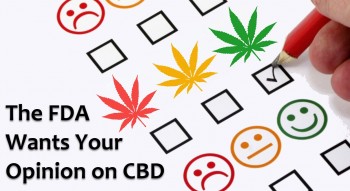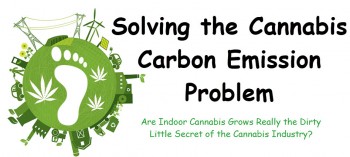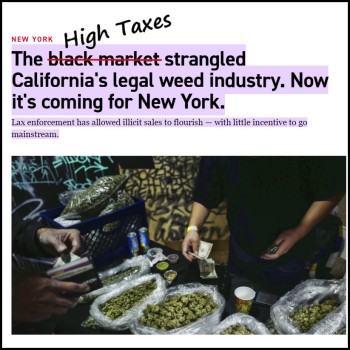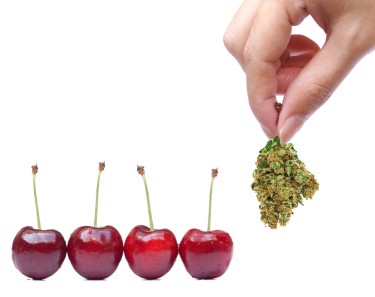
The Art of Cherry Picking
Providing Perspective to non-nuanced news opinions
https://www.politico.com/news/2023/02/06/congress-pots-ill-health-effects-00081178
Yes, this will be the opinion of an opinion – because the article I’m about to cover poses as a “news” article but in actuality is a poorly constructed opinion. It is my objective today to disembowel the contents of this article and showcase how the “Machine” utilizes information to sustain a policy that is corrosive to society as a whole.
In today’s “sniper session”, we’re going to be analyzing an article written by a man named Ben Leonard, who according to his Politico bio is;
Ben Leonard is a health technology reporter at POLITICO, covering digital health action from D.C. at agencies, in Congress and in the White House, as well as the industry at large.
He’s also a co-author of POLITICO’s Future Pulse newsletter.
The article in question is titled; “Pot is making people sick. Congress is playing catch-up.”
While many of the things Ben says in the article are factually correct, the way it is presented comes paints cannabis in a biased light. I aim to set the record straight.
Argument 1: Recent Health Problems with Cannabis
In the article Ben writes in his opening statements;
But the policymakers overseeing legalization were flying surprisingly blind about its effect on public health. Only recently has a steady flow of data emerged on health impacts, including emphysema in smokers and learning delays in adolescents.
SOURCE: POLITICO
Except, he fails to provide any sources to that claim. It’s simply left in there and the reader is meant to trust Ben’s opinion.
I’d like to see the data on this “new information”. Especially since I’m a person who is monitoring all things within the cannabis space, I would know of this “streams of data” that suggest people are getting sick.
And while it’s true, there are people who get intoxicated from cannabis, the truth of the matter is that it’s a miniscule percentage compared to the larger population that consume cannabis.
The use of cannabis as a medicinal and recreational substance dates back thousands of years, with evidence of its consumption and cultivation found in various cultures and civilizations around the world. In recent decades, scientists and researchers have been studying the effects of cannabis on the human body, with a particular focus on its medicinal properties and safety for consumption.
One of the leading countries in cannabis research is Israel, where scientists have been studying the plant and its effects for many years. Israel has been at the forefront of cannabis research, conducting clinical trials and publishing numerous studies on the topic. These studies have provided valuable insight into the effects of cannabis on the human body and have helped to dispel many of the myths and misconceptions surrounding its use.
Despite the restrictions on cannabis research in the United States, the data and scientific literature on the topic is vast and robust. The overwhelming majority of studies suggest that cannabis is safe for consumption for the majority of people, with only a small subset of people with pre-existing conditions potentially experiencing negative effects.
The available data and scientific literature on cannabis consumption suggests that it is generally safe for the majority of people. While further research is always necessary, the evidence to date suggests that the plant has been used safely and effectively by humans for thousands of years and that its use poses relatively few risks to the majority of people.
Argument 2: “Evidence is overwhelming (maybe)”
While this following section isn’t a single citation of evidence, each study couldn’t prove a causal relationship between whatever the issue was and cannabis. For example,
The researchers found that from 2011 to 2019, teenagers in states that legalized recreational cannabis saw a “slight” uptick in asthma rates in kids ages 12 to 17 compared with states in which cannabis remained illegal. The team, from the City University of New York, Columbia University, the University of California San Diego and others, also found an increase in asthma among children in some racial and ethnic groups.
Except, kids in that age group predominantly utilizes vaporizers as opposed to smoking joints and a 2020 study entitled, “Medical Cannabis in Asthma Patients” concluded;
Cannabis has a bronchodilator effect on the airways and might have an anti-inflammatory effect on asthmatic patients. However, harmful effects on the lungs are mainly attributed to smoking and include airway irritation and the development of chronic bronchitis symptoms.
SOURCE: PUBMED
Which means, if these kids are predominantly “vaping”, and not smoking, then it’s probably in their best interest to consider what elements are placed within the vaping devices. We know a few years ago EVALI caused major concern, however, I doubt that the researchers are even thinking in this manner.
This is because, when researchers talk about age groups like 12-17, they don’t understand the cultural implications behind the consumption of cannabis. I do, because I’ve been writing on cannabis culture for 15 years.
Obviously, there would be an influence in the results if you factor “smoking vs vaping vs eating it” all of which will have different impacts on the individual. Not to mention that cannabis already has a unique effect on each person due to their endocannabinoid system.
The rest of the article also points out suggestive “evidence” linking it to other conditions I have shown in previous articles to be a fancy way of interpreting data according to narrative.
To be fair…
Ben isn’t calling for keeping cannabis illegal, and that I can respect. But what he is doing is painting cannabis as some “dangerous threat” to society when in reality it isn’t. The danger that we’re seeing, and all of the evidence that he is pointing to suggests that the populace is “uneducated” when it comes to drug use.
Drug prohibition has long been a source of confusion and misinformation, creating a "drug-dumb" populace that lacks a basic understanding of the effects of certain substances and how they interact with the body and mind. This ignorance is the result of decades of fear-mongering and propaganda aimed at demonizing drugs, particularly those classified as "illegal". The taboo nature of the topic and the fear of legal repercussions have made it difficult for individuals to obtain accurate information about the effects of drugs and their potential benefits or risks.
Cannabis is a prime example of the negative consequences of drug prohibition. Despite its long history of use, dating back thousands of years, the plant has been demonized and vilified for decades, perpetuating myths and misconceptions about its effects. The result is a generation of people who lack basic knowledge about the drug and its potential benefits and risks.
By keeping people in the dark about drug consumption, the government is essentially "giving children scissors to run with on a busy highway". The lack of accurate information and education about drugs increases the risks associated with drug use, leading to potentially dangerous and life-threatening situations.
Drug prohibition creates a "drug-dumb" populace that lacks basic knowledge about the effects of drugs and their interaction with the body and mind. The continued demonization of drugs and the taboo nature of the topic perpetuates this ignorance and increases the risks associated with drug use. It is time to end the war on drugs and embrace a more rational and evidence-based approach to drug policy.
This is precisely why the article is missing the point…it’s not necessarily about cannabis but rather the people who are using it. Kids are drinking booze too, we have regulations on the table for that.
But the federal government refuses to legalize cannabis. Keeping it in the dark, keeping people dumb. The results and potential negative consequences of cannabis is not a result of the plant, but the ignorance surrounding it.
If people understood that edibles release 11-hydroxy THC which is 10x more potent than Delta-9, they wouldn’t leave candies around for kids to find. They would lock up their stashes, they would educate their children in a similar fashion as they do with booze – which in America is dismal.
In the United States, drug education is left to the hands of street dealers, who have a vested interest in keeping their customers addicted and uninformed. This lack of accurate and comprehensive drug education perpetuates the cycle of addiction and contributes to the high rates of drug-related harm in the country.
The War on Drugs has only exacerbated the problem, leading to increased criminalization of drug use and a lack of resources for treatment and education. The focus has been on punishment rather than prevention, leaving individuals who use drugs without the knowledge or resources to make informed decisions about their own health.
The only way to make the world safer is through the legalization of all drugs and the de-stigmatization of drug use for adults. This would allow for the regulation of drugs and the provision of accurate information about their effects and risks. It would also provide funding for treatment and harm reduction programs, reducing the burden on the criminal justice system and improving public health.
Legalization and de-stigmatization would also remove the profit motive from the drug trade, reducing the influence of street dealers and other criminal elements. By taking the drug market out of the hands of criminals and putting it under the control of the government, we can ensure the safety and quality of the drugs being sold, while also reducing the spread of diseases such as HIV and hepatitis.
In conclusion, the current approach to drug education and the War on Drugs have only contributed to the problem and left individuals vulnerable to harm. The only way to make the world safer is through the legalization of all drugs and the de-stigmatization of drug use for adults, allowing for the regulation of drugs, the provision of accurate information, and the funding of harm reduction programs.

